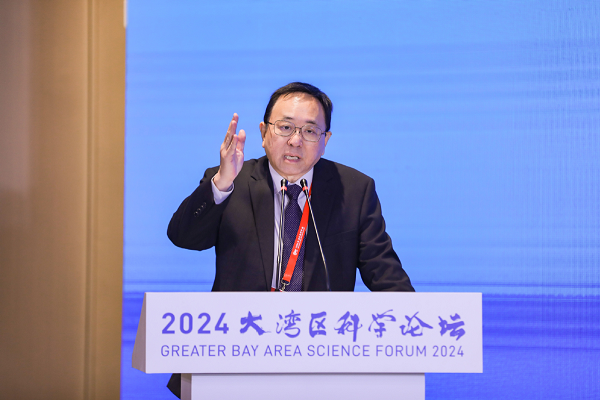Global experts discuss low-altitude economy development in Guangzhou

Professor Lionel M. Ni, president of HKUST(GZ), speaks during the Low-Altitude Economy Development Strategy Sub-forum of the 2024 Greater Bay Area Science Forum. [Photo provided to chinadaily.com.cn]
Professor Lionel M. Ni, president of HKUST(GZ), said in his speech that the low-altitude economy, as a trans-disciplinary field, aligns well with the educational philosophy of HKUST(GZ).
HKUST(GZ) established the Low-Altitude Systems and Economy Research Institute (LASERi) in April this year, aiming to contribute to the overall development of the low-altitude economy through the organic integration of disciplines such as materials, energy, microelectronics, artificial intelligence, big data, and science and technology policy.
The LASERi has attracted more than 80 educators and has supported 25 promising projects. Ni emphasized that, as a research institution, HKUST(GZ) must remain at the forefront of innovation, pursue close collaboration with industry partners, address fundamental technological challenges, and create the "HKUST(GZ) Model" to advance the development of the low-altitude economy.
Furthermore, in the special report session, academic representatives from HKUST and HKUST(GZ), along with representatives from organizations such as China Unicom Guangdong, the Guangdong Urban-Rural Planning and Design Institute, and Guangzhou EHang Intelligent Technology, presented comprehensive reports on varied topics such as scenarios and systems, sustainable development and energy, as well as aircraft technology.
All rights reserved. Presented by China Daily









